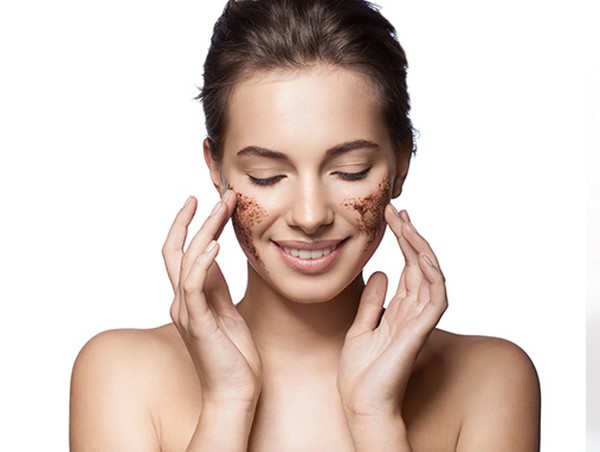If you’re obsessed with having smooth, velvety & flawless skin, then using a face scrub once every week is your answer. An exfoliating face scrub is a great addition to your skincare routine as it offers many benefits that result in a clean and healthy visage. Face scrub also helps nip acne in the bud and correct pigmentation to a certain degree.

Our skin has natural exfoliation abilities that allow the skin to regenerate and resurface every 28 days, thereby pushing out dead skin cells from the surface to make new skin shine. This cellular regeneration process weakens as we age and needs external help that boosts skin cells with antioxidants and collagen production to avoid dull and uneven texture caused by dead skin build-up.
What To Look For In A Face Scrub
A face scrub is beneficial to all skin types, be it dry, oily, combination, or gene-perfect skin. However, one face scrub doesn’t suit all. Choosing an exfoliating scrub is determined by your skin type, concern (acne, excess oil, tan, whiteheads & blackheads), ingredient mix, and sensitivity/tolerance level.
Another important decision factor is the texture of the face scrub. Some scrubs have large rough beads intended to extract dirt and excess oil from pores but will eventually wear out the skin, leading to loss of elasticity and shine. Some brands use harsh surfactants to break down oil on the surface. leaving the skin dehydrated and irritant due to lack of moisture.
Since exfoliation is only concerned with removing dead skin build- there is no hard and fast rule on how often you should exfoliate. While some benefit from it twice a week, some can do it once a week. It’s important to pay attention to how your skin responds and decide the frequency for face exfoliation. Do not, however, use a scrub every day as this will cause over-exfoliation and dryness.
The Benefits of Using A Face Scrub
-
Minimizes Pores:
Whiteheads and blackheads are caused by dirt, bacterias, oil, and dead skin cell plugs inside pores, inflating the area and making pores look bigger than normal. Face scrub help extract and clear out pores effectively, resulting in an acne-free and smooth texture.
-
Controls Oil:
Face scrub help remove excess oil from the surface to protect the skin from various issues like pigmentation, dark spots, and blemishes. For acne-prone and oily skin types, using face scrub twice a week will help control oil that is also a cause for acne inflammation.
-
Fades Tanning:
The exfoliation process will slowly neutralize the effects of sun tanning through the process of new skin regeneration and healing.
-
Resurfaces New Skin:
Since exfoliation removes dead skin, face scrub helps resurface new and fresh skin from beneath the skin onto the surface, showing less signs of damage, such as pigmentation or scars.
-
Protects Skin Barrier:
Face scrub help remove dirt and impurities from the skin that could affect the skin’s protective barrier’s immunity.
-
Boost collagen and antioxidants:
In addition to exfoliation, ingredients like coffee and aloe vera help improve the skin’s immune system from signs like premature aging and moisture loss by powering it up with antioxidants and hydration.
-
Preps Skin:
Build-up of dead skin on the face will cause uneven texture. Getting rid of such will clear the way for better absorption by other skincare products like moisturizers and sunscreen. Also, it will provide a smooth canvas for makeup.
Mamaearth Ubtan Face Scrub, enriched with the natural goodness of Turmeric and Walnut, is just the thing you need! Antioxidants in Turmeric protect skin from free radical damage. It’s also traditionally known to fight sun tan and lighten skin tone. Walnut in the scrub gently exfoliates to reveal fresh & healthy skin. Dermatologically tested, this scrub is suitable for all skin types. It contains no harmful chemicals like SLES, Sulfates, Phthalates, and Artificial Colors.
